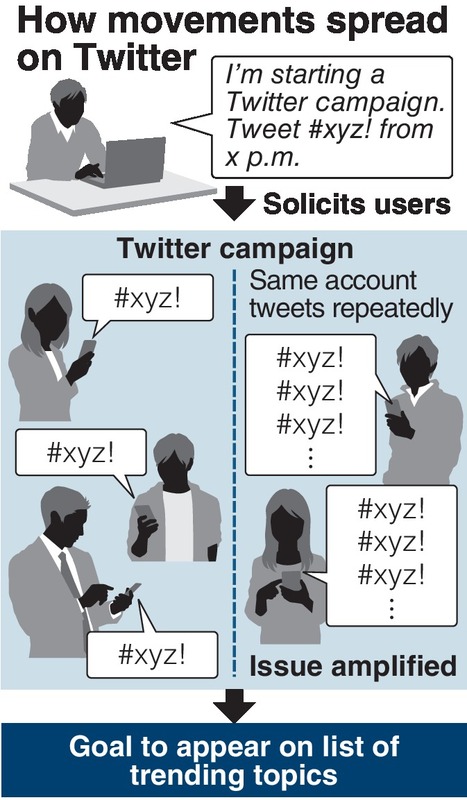
When an opinion posted online got thrust into the spotlight during Diet deliberations, it triggered alarm bells about the risk of views expressed on social media influencing policymaking.
However, individual users can be responsible for multiple posts online, so the number of comments about an issue can be far higher than the number of people who hold a view about it.
One such example is the furor surrounding the decision to hold a state funeral for former Prime Minister Shinzo Abe.
When media reports emerged about state funeral plans in July, a man in his 60s posted tweets expressing opposition to the decision. The man, who runs a cram school in Hyogo Prefecture, posted a tweet with the hashtag, "I oppose Shinzo Abe's state funeral."
"It's strange that a decision was made without sufficient discussion in the Diet, even though tax money is going to be used," he told The Yomiuri Shimbun.
Every morning when he woke up at 6 a.m., the first thing he did was post a tweet with the hashtag via his smartphone, and he continued to do so in his free time during the day.
The man said he "also used free online bots," which are digital tools that can be used to perform repetitive tasks automatically.
The bots posted tweets from three computers at his home between 5 p.m. and 10 p.m. on weekdays when he was teaching. He said he tweeted the hashtag more than 1,000 times.
Twitter Inc. said the company does not prohibit the use of bots, but it will remove posts if they are deemed to be troublesome or freeze accounts.
Many of the automated posts by the man have already been deleted, he said.
The hashtag against the state funeral appeared in 646,296 tweets, 28% of which came from accounts that posted it more than 100 times.
A 27-year-old woman in Aichi Prefecture posted tweets last September with the hashtag, "I'd rather protest against social welfare assistance for foreigners than the state funeral."
She said she tweeted four to five times a day from her smartphone while breastfeeding her child. She ended up posting 87 times in total.
Protest movements have been growing rapidly on Twitter, with the increase in social media use amid the pandemic cited as one of the factors.
Tweets with protest hashtags have increased by about 30 times compared to before the pandemic, according to an analysis by The Yomiuri Shimbun and JX Press Corp.
An online protest against the revision of the Public Prosecutor's Office Law was even mentioned during a Diet debate in May 2020.
The Liberal Democratic Party analyzes comments on social media, looking at the number of posts and the demographic of posters.
Lawmaker Masaaki Taira, the director of the LDP's Internet Media Division, said: "Views expressed on social media are the voice of the people. But, it would be mistaken to interpret biased views as public opinion."
Read more from The Japan News at https://japannews.yomiuri.co.jp/







